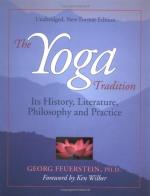|
This section contains 13,952 words (approx. 47 pages at 300 words per page) |

|
SOURCE: Collinson, Patrick. “Truth, Lies, and Fiction in Sixteenth-century Protestant Historiography.” In The Historical Imagination in Early Modern Britain: History, Rhetoric, and Fiction, 1500-1800, edited by Donald R. Kelley and David Harris Sacks, pp. 37-68. Cambridge: Cambridge University Press, 1997.
In the following essay, Collinson analyzes the controversy surrounding Foxe's work, focusing on issues of veracity in the text.
I
John Foxe (and notwithstanding some glancing references to John Bale and Miles Coverdale, Foxe will serve on this occasion as shorthand for “sixteenth-century historiography”) had a great deal to say on the subject of “truth.” In a sense he wrote about nothing else. But he was accused by his religious opponents of telling lies on an unprecedented scale. And if he did not deliberately propagate fictions, in the sense of inventing his stories, he wove his material into forms that were as fictive as they were factual. Like his...
|
This section contains 13,952 words (approx. 47 pages at 300 words per page) |

|


